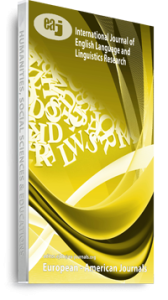The shared knowledge, belief and presupposition of interlocutors in conversational exchange have been identified as requisite to the success of the communicative endeavour. The mutual linguistic and contextual common ground of interlocutors has been reinvestigated and adduced as not being static or fixed as erstwhile conceived in some linguistic circles but rather dynamic and emergent as negotiated in the course of discourse. The postulations on CG expressed above may, however, not represent two irreconcilable extremes as everyday conversation seems to give credence to interlocutors’ delicate blend of these vagaries to CG in their conservational encounters. This study therefore investigated empirical data with a view to examining grounding strategies observable in the radio talk exchanges and their implication for common ground in meaning recovery, using a recorded episode of the Edo State Broadcasting Cooperation health awareness programme, ‘The World of Herbs’. The findings in relation to the objective expressed above provided evidence of grounding strategies in the forms of back channels and minimal feedbacks which function in discourse on the basis of their point of occurrence in text to indicate support for, alignment with or interest in hearer, with politeness significance for the speaker, the hearer or both parties. Dimensions of common ground utilized include aspects of common knowledge, presupposition, belief, and the inclusion of Speaker and Hearer in activity to polite ends. Some others are of perlocutionary import in amelioration of perceivable subsequent face threat or the reinstatement of previous discourse pattern. Overall, the dimension and extent of common ground subscribed to on occasion of discourse seems highly regulated by discourse type and goal.
Keywords: Common Ground, Grounding Strategies, Meaning Recovery, Nigerian Pidgin Health Talk

